Advertiser content
HCC’s red meat farming programme brings supply chain success
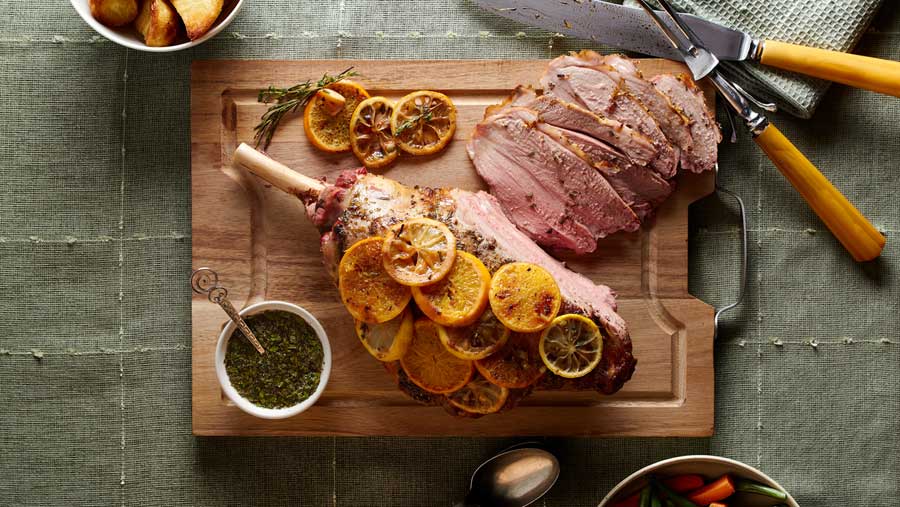 PGI Welsh Lamb on the menu © Hybu Cig Cymru
PGI Welsh Lamb on the menu © Hybu Cig Cymru Hybu Cig Cymru – Meat Promotion Wales (HCC) is proud of the projects it has led during the past few years as part of The Red Meat Development Programme.
The aim was to equip the Welsh red meat sector for the future; promote efficiency, profitability and sustainability throughout the supply chain.
All this whilst ensuring PGI Welsh Lamb remains a high-quality, traceable product that future consumers want to buy and eat.
By focusing on animal health, genetics and meat-eating quality, all three projects, Stoc+, Hill Ram Scheme and Welsh Lamb Meat Quality have engaged with farmers across Wales during the past five years, supported through the Welsh government and EU funding.
Latest technology in farming
The Hill Ram Scheme has been using the latest technology in Wales’ upland and hill flocks to strengthen the Welsh sheep sector through long-term genetic improvement.
As part of this project, research has been carried out looking at the Welsh environment and how sheep grazing can impact on biodiversity and carbon emissions.
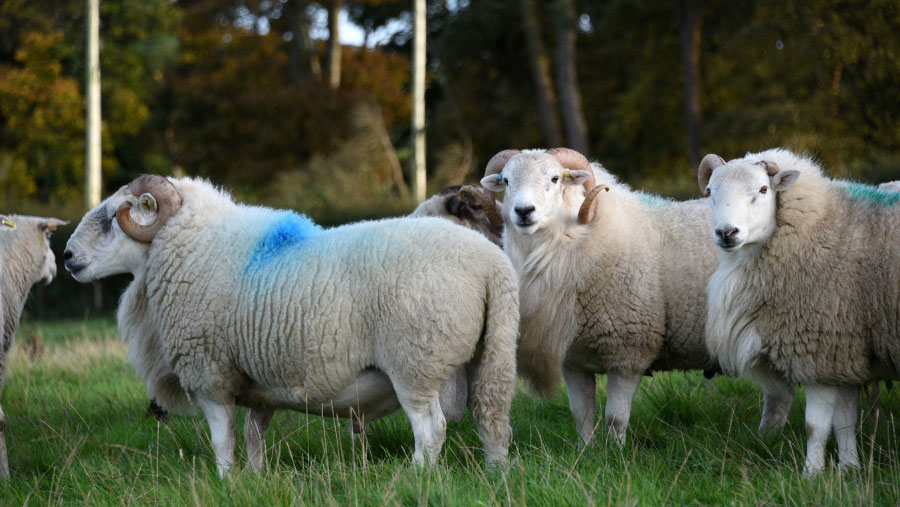
Welsh mountain hill rams © Hybu Cig Cymru
Two of the 22 farms who participated in the environmental and carbon audits on their farms were Ben Williams who farms in partnership with his family at Garth Uchaf Farm on the outskirts of Cardiff and Huw Alun and his family who farm Hengwrt Ucha, Rhydymain near Dolgellau.
Working with the environment
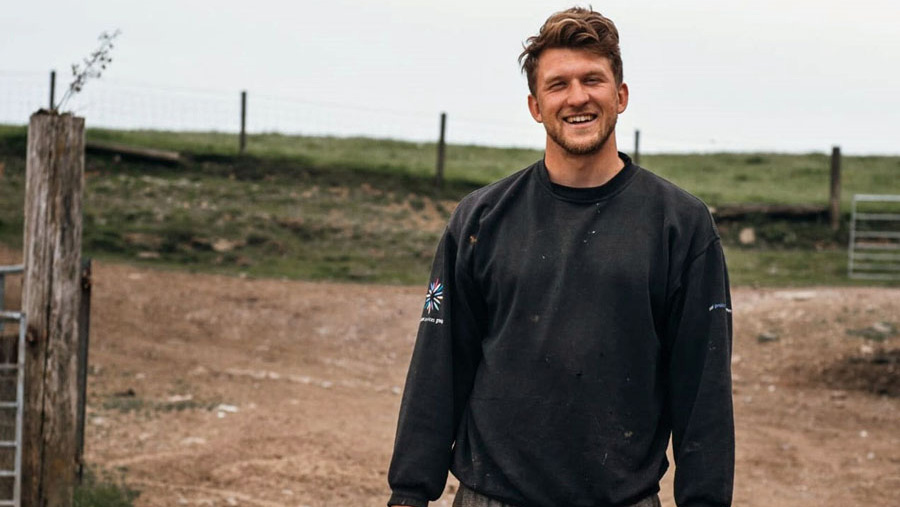
Farmer, Ben Williams, from Pentyrch on the outskirts of Cardiff © Hybu Cig Cymru
Ben Williams who farms a flock of 600 Welsh mountain sheep said: “As Welsh farmers we have done a lot of environmental work over the years. Here, in Pentyrch, we’ve laid new hedgerows, planted 6,000 native trees and created small ponds.
“In the coming weeks we will see our biodiversity report returned, and I’m hoping that this will be our opportunity to see the fruits of our labour recognised and evidenced on paper.”
In the Meirionnydd hillside, Huw Alun Jones and his family have recently received their carbon footprint report.
Rhys, who farms with his father said: “Our carbon footprint report shows that Hengwrt is performing well, we are carbon negative here.”
Proud to be part of the answer
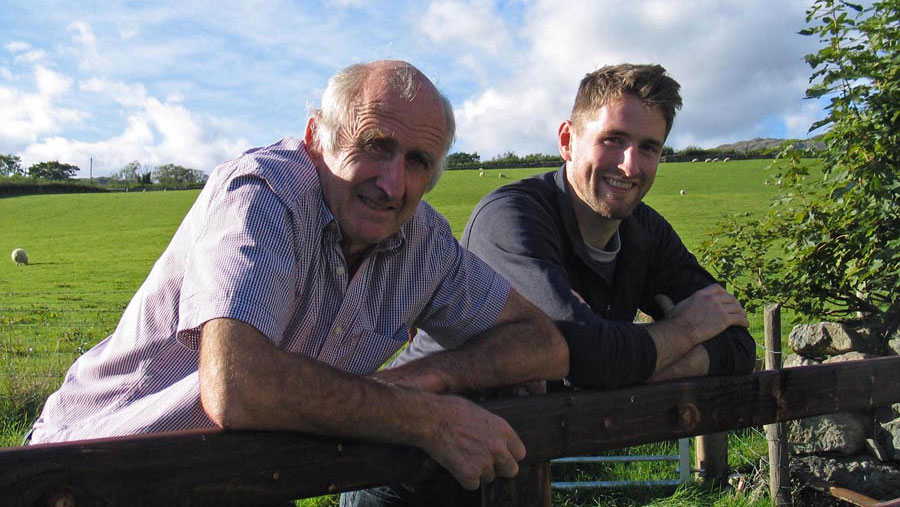
Huw Alun and Rhys farm with the family at Meirionnydd © Hybu Cig Cymru
“Our native breeds, the Welsh Black cattle and Welsh mountain sheep work with the environment at Hengwrt. It is a delight to see the pollinators, bugs, insects and birds thrive around us, here on the farm.
“We are proud and privileged to be partly responsible that these creatures and wildlife thrive here on the farm, and we should, as farmers, be shouting from the rooftops what we are achieving within the industry.”
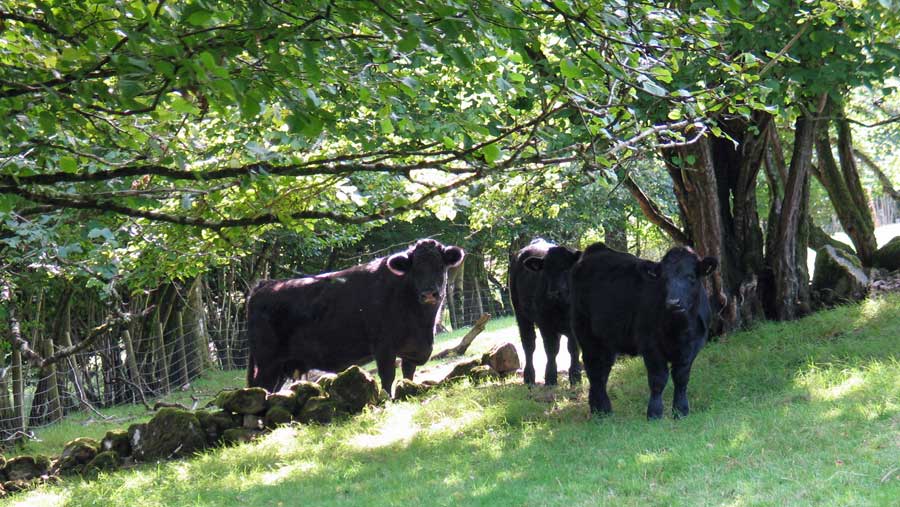
The native breed, Welsh Black cattle graze at Hengwrt © Hybu Cig Cymru
It’s estimated that nearly 10% of the farm at Hengwrt is woodland, with nearer 25% tree covering on the inbye land only, a haven of shelter for stock during winter months.
Evaluate key elements of sustainability
John Richards from Hybu Cig Cymru said: “We now await an over-arching report evaluating key elements of sustainability on these upland farms that will include an audit of greenhouse gas emissions and a wider environmental audit that includes biodiversity.
“The Hill Ram Scheme has enabled the industry to shine a light on these issues together with the quality of our Welsh stock based on the performance records of sheep that thrive in the hill environment.
“Over 50 farmers have been working with us successfully and we have been particularly pleased to have seven different ram breeds taking part in the overall Hill Ram Scheme.”
More results to come
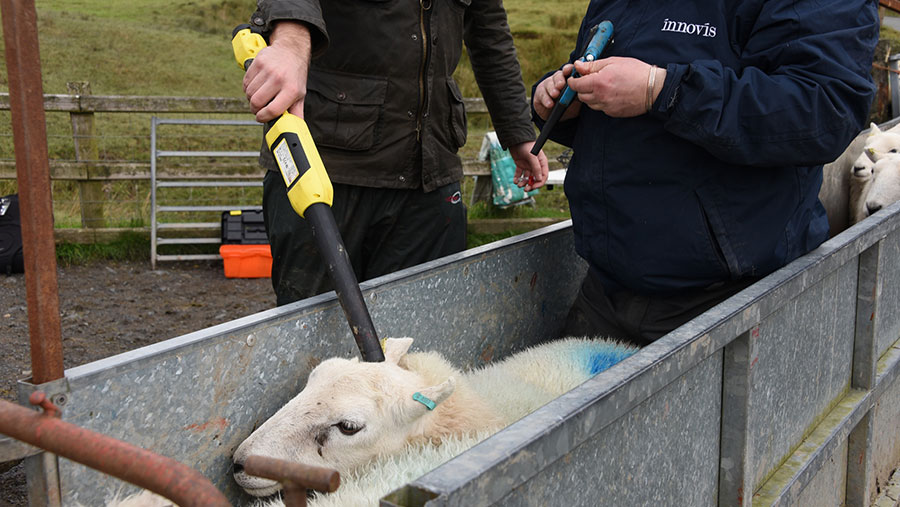
The latest technology used for long-term genetic improvement © Hybu Cig Cymru
“As we are reaching the last stages of the project, in the coming weeks, we would like to thank everyone who has participated in all three projects, be they farmers, vets, our funders, other organisations that have supported the programme and our own hard working staff members. We look forward to sharing more results in the coming weeks and months.”
HCC’s Hill Ram Scheme, Stoc+ and Welsh Lamb Meat Quality are three five-year projects in the Red Meat Development Programme funded by the Welsh Government Rural Communities – Rural Development Programme 2014-2020, through the European Agricultural Fund for Rural Development and the Welsh government.
Provided by
Hybu Cig Cymru – Meat Promotion Wales (HCC) is the organisation responsible for the development, promotion and marketing of Welsh red meat.
For the last 5 years, HCC has delivered the Red Meat Development Programme, a strategic initiative aimed to improve profitability and sustainability in the red meat supply chain. The three projects within the Programme are Stoc+, the Hill Ram Scheme and the Welsh Lamb Meat Quality Project.
HCC also works to promote Welsh red meat and develop new markets at home and abroad. It also supports the industry through research and development, information dissemination and support and training throughout the supply chain.
To find out more:
Call: 01970 625050
Email: info@hybucig.cymru
Visit: meatpromotion.wales/en/industry-projects/red-meat-development-programme
